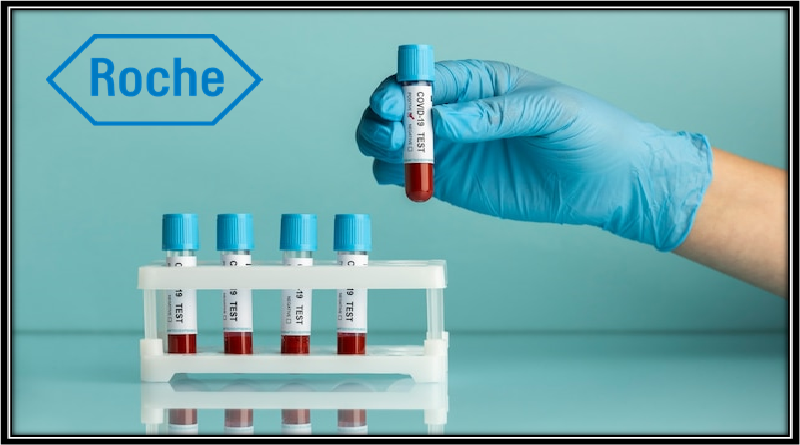Researchers can use Roche’s COVID-19 test to identify the most recent subvariant, BA.2.75 and distinguish it from BA.4 or BA.5.
This novel test, which targets mutations detected in the BA.2.75 subvariant specifically, is a very precise instrument that offers crucial epidemiological insights in assessing the potential effects of treatments, vaccinations, and public health initiatives.
Researchers can now use the COVID-19 test Roche and its subsidiary TIB Molbiol have created to identify and distinguish the most recent subvariant of interest BA.2.75. Two of the known unique mutations in BA.2.75 are the focus of the test, allowing for a clear distinction from other noteworthy subvariants.
“Roche is pleased to have developed a test for researchers that provides insights into the epidemiology of BA.2.75, helping to understand its impact on public health”, “Being able to differentiate emerging variants and understanding their similarities and mutations, can provide a basis for experts to make predictions of their spread and response to treatment strategies.”
Cindy Perettie, Head of Molecular Labs at Roche Diagnostics Solutions
More than a dozen nations have reported cases of BA.2.75 since it was originally discovered in India in May 2022. A subvariant of the Omicron variant is the BA.2.75. The World Health Organization and the Centers for Disease Control and Prevention are both keeping an eye on the subvariant. Although it is not yet a Variant of Concern, separating it from BA.4 and BA.5 enables better tracking to comprehend how it is spreading.
The extensive range of COVID-19 test kits created by Roche and TIB Molbiol now includes the research-only test VirSNiP SARS-CoV-2 Spike 147E 152R, which can be used to identify recent BA.4 and BA.5 subvariants as well as additional mutations found in the Omicron SARS-CoV-2 variant.
Researchers from Roche and TIB Molbiol are still collaborating with partners around the world to continuously screen for novel variations and newly emerging diseases.
About the VirSNiP SARS-CoV-2 Spike 147E 152R
The test particularly targets the two known unique mutations in BA.2.75, K147E and W152R, allowing for a clear distinction from other noteworthy subvariants. This exam is accessible anywhere and is only intended for research use. The Lightcycler(R) and cobas® z480 analyser are compatible with the VirSNiP SARS-CoV-2 Spike 147E 152R.
About Roche’s response to the COVID-19 pandemic
As a top healthcare provider, we are doing everything in our power to aid nations in their efforts to combat COVID-19 and lessen its effects. To assist contain the COVID-19 epidemic and ensure that patients continue to receive the testing, treatments, and care they require, we are collaborating with governments, policymakers, healthcare providers, and others.
The pandemic has profoundly raised awareness of the role diagnostics play in COVID-19 diagnosis, treatment development and disease management. Roche has developed and launched more than 20 COVID-19 diagnostics solutions, including polymerase chain reaction (PCR) and rapid antigen and antibody tests. Our solutions serve the entire diagnostic continuum, from high-throughput laboratories to point-of-care and home self-testing, and cover all currently known variants. To help meet global demand, we have supplied more than 1.5 billion tests for COVID-19 since March 2020.
Roche is still assessing its current medication line-up and looking for potential new approaches to aid patients with Covid-19. In more than 30 countries, including the European Union, our IL-6 inhibitor Actemra®/RoActemra® (tocilizumab) has been approved for patients hospitalised with severe COVID-19. It is also approved for emergency use in the United States. As a result of Actemra’s prequalification by the World Health Organization for use in patients with severe COVID-19, its accessibility in low- and middle-income nations is made easier. Additionally, by implementing a global differentiated pricing strategy, offering Actemra at cost for usage in low- and middle-income nations, and refraining from asserting patents in these areas during the epidemic, we have improved access to the medication.
As part of our collaboration with Regeneron, we have also been working to develop the antibody combination RonapreveTM (casirivimab and imdevimab, also known as REGEN-COVTM in the US). It has received approval in numerous regions, including the European Union, Japan, and Switzerland. It has also been given permission for emergency or short-term pandemic usage in many nations, including the US. The antibody combination is now accessible to patients in more than 60 nations, including many low- and middle-income nations. We closely track Ronapreve’s effectiveness against new viral variations of concern as it continues to mutate, and we will promptly report findings with relevant health authorities.






